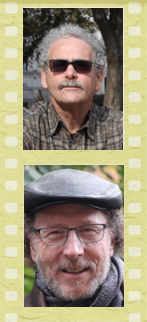
Films about end of life, illness, and disability
Balfour Mount: Reflections on Living and Dying
On Wings of Song – Music Therapy at the End of Life
Whole Person Care & the Need for a Paradigm Shift in Health Care
(2004) 77 minutes
A documentary film about a gifted writer and teacher who celebrates the wonder of life even as he is slowly dying of ALS.
At the age of 35, Philip Simmons learned that he had ALS – Lou Gehrig’s disease. Married, with two young children and a promising career as an English professor and writer, he was told that he had less than five years to live. Filmed in the foothills of the White Mountains of New Hampshire, this intimate portrait of Phil and his family captures the witty eloquence and poetic grace of a dying man, and his heroic journey.
For family and friends of a chronically ill person, as well as palliative care practitioners, The Man Who Learned to Fall is a story of hope. It is not as much a film about dying, as it is a film about living.
As his muscles deteriorate and his body becomes increasingly paralyzed, Philip Simmons continues to “wrestle joy from heartbreak” – again and again and again – at each stage of his ongoing losses. Although his illness eventually forced him to give up his university teaching, he continued to write and in August 2000, he published Learning to Fall: the Blessings of an Imperfect Life, a book described by Rebecca Pepper Sinkler, former editor of The New York Times Book Review, as “a literary gem enlightening us about the deepest mysteries of life”.
We meet Phil a year after the publication of his book, which his publisher, Bantam Books, feels “has the potential to be a spiritual classic”. Although he eloquently described ALS as “emptying me out one teaspoon at a time”, he also proclaimed that “a fuller consciousness of my own mortality has been my best guide to being more fully alive”. Phil Simmons outlived the medical predictions, and lived with his illness for almost ten years.
“Over the year I spent getting to know Phil Simmons, I was repeatedly impressed with his ability to find pleasure and humour in life’s uncanny ironies. He was a man who delighted in words and wit, a writer with a keen eye for the nuances of character and drama, but his greatest pleasure seemed to come from the tragicomedy of life itself. And as he became increasingly incapacitated, he learned to transform his personal tragedy into a subtle but refined performance addressed to a world in need of healing. And that became his gift to himself, to his family and friends, to the many audiences to whom he performed his compelling vision of living and dying.” Garry Beitel, director
Film available in English with French subtitles.




